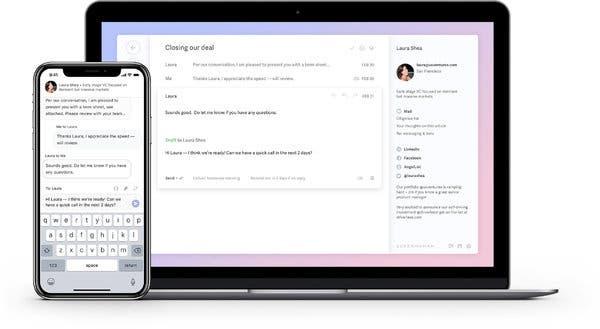Pessimism is easy, but that doesn't make it right
The story of the Mighty product launch
Suhail Doshi unveiled Mighty (a super-fast web browser) last week, and the Internet Pessimism Machine came out in full force to rain on his parade.
Yes, $30/m for an otherwise free product sounds crazy. Yes, there are other alternatives to improving your browser speed. Yes, brilliant and anonymous internet users, you probably could have hacked together something better. But you didn’t, and Suhail did. (In public!)
Snarky bulletin board comments that criticize the future prospects of a fledgling startup totally miss the point — everyone knows that most startups fail, so pessimism about new startups will almost always be proven correct. But that doesn’t make it right.
The question at this stage is not whether a startup experiment is likely to succeed, but whether a founder has identified a hypothesis worth testing.
“People might pay for a faster browser” is a great hypothesis to test.
📈 First, modern digital life is increasingly spend in a browser window. I am writing this article straight into a browser window; I spend most of my day working in Google apps in a browser (Mail, Calendar, Meets, Slides, Sheets, etc.); after work, I might play around in Webflow, a browser-based web design tool, or Figma, a browser-based design tool I’ve been meaning to try. These browser apps are directly winning the competition for my attention from desktop apps, and that’s a trend that may continue over the long term. If it is, we had better have someone working on innovation in browser tech.
⏳ Second, the browser-primary computing experience is slow, and therefore painful. My day is interrupted with tiny, split-seconds of lag and processing time as I wait for webpages to open and Google Sheets to calculate. Working in the browser also crushes my battery life, and occasionally makes my computer very angry (particularly when I’m researching for an article like this, and have dozens of tabs open in Chrome). Perhaps a super-user of a demanding app like Figma would be even more annoyed by such lag, and perhaps they’d pay someone to take that lag away.
💸 Third, there are direct analogies that support the (seemingly ridiculous) $1-per-day pricepoint that Mighty plans to charge. The most obvious is Superhuman, a super-fast email service that charges — you guessed it — $1 per day. They found a following with business users, and raised a Series A from Andreessen Horowitz at a $260 million valuation.
Another comparable company, arguably, is Dropbox. In 2007, the idea of a cloud-based file storage system also drew ire from the HackerNews crowd.

💻 Fourth, people (and companies) spend a ton of money upgrading their computer hardware. Pushing processing and memory to a centralized supercomputer makes intutitive sense; it means each individual can get subscription access to the best hardware available at the time. I always stress out when it’s time to choose a new computer, and using Mighty might mean that I outsource the tough questions to someone else (or avoid them altogether by making each individual machine I use last longer).
😎 And finally, Balaji Srinivasan and Paul Graham think it’s smart.




I kid… but only a little. These are two of the best evaluators of early startups in the entire world, and they’ve learned a thing or two about what kinds of experiments are worth testing.
🤔 Will Mighty work out? Probably not. But is it worth a try? Absolutely.
Contrary to popular belief, entrepreneurship is not a good place for folks who need positive affirmation from the world. Kudos might come in from the outside around big milestones, or more often if you’re a consumer-marketing genius, but the tough times are far more frequent in the early stages, and any founder worth their salt knows how to eat glass, stare into the abyss, and come back smiling the next morning.
Suhail is worth his salt, and he’s handling the negative reaction like a champ.

But this post isn’t about him. It’s about you.
The next time that you see a startup that looks like a silly idea, don’t take the easy, pessimistic path and think about the ways it could go wrong. Instead, think about the ways that it could go right. Be optimistic, even though it’s harder. If you do, I’ll promise you this — you’ll be wrong more often, but you’ll have way more fun.
Thanks for reading!
My name is Christian, I’m the Chief of Staff at Astranis, and I’m a native Midwesterner. If you enjoyed this piece and agree to join 300 folks in getting an email from me every Monday, I’ll help you understand Silicon Valley using normal-human words.







